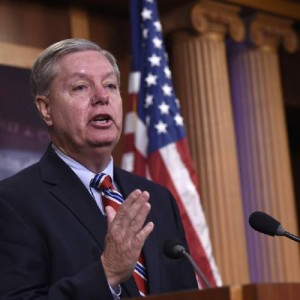By: TOM PHILPOTT Military Update March 13, 2016 Updated: March 13, 2016 at 8:10 am
Sen. Lindsey Graham, chairman of the Senate armed services subcommittee on military personnel, signaled Tuesday that he will support a plan to allow drilling Reserve and Guard members to have access to the menu of health insurance plans offered to federal civilian employees.
“We’re actually thinking about taking the Guard and Reserve and basically putting (them) into the federal employees health system, right?” Graham, R-S.C., asked Scott Bousum, legislative director of The Enlisted Association of the National Guard, who acknowledged the plan.
“To me that’s pretty exciting,” Graham said. “I mean Guard and Reservists, generally speaking, are not (residing) next to military treatment facilities. And it basically would give you the same access to providers as members of Congress and our staffs have.”
If allowed insurance coverage under the Federal Employees Health Benefit Plan, reserve component members would have to pay monthly premiums like federal civilian employees do, Graham said.
But opening the plan would address a common complaint of Reserve and Guard personnel that continuity of care for their families often is interrupted when they are called to active duty. That’s because they either lose their employer-paid health insurance or they face significantly higher health costs by electing to continue coverage and paying the employer’s share too.
About 24,000 Reserve and Guard members are satisfied with more limited Tricare Reserve Select coverage despite its own continuity of care issues.
Graham’s backing of benefit access appears to align with the goal of a proposal from Reserve Officers Association to create a new Tricare Reserve Choice program. That would allow Reserve and Guard members to choose their own health care providers, paying premiums equal to 25 percent of plan costs.
The full armed services committee, followed by majorities of the Senate and the House, would need to rally behind one of these ideas before reserve component personnel would see health care coverage improve.
Tuesday’s hearing, which began with testimony from personnel chiefs of the Army, Navy, Air Force and Marine Corps and then advocates for military families, focused on proposed Tricare “reforms” and higher fees; a shift to more businesslike commissary operations and product pricing, and needed changes to the “blended” retirement plan due for launch in 2018.
Senators also returned again and again to the need for colleagues to end budget-driven cuts to U.S. ground forces, by acknowledging worldwide threats that have arisen since passage of the Budget Control Act of 2011.
Graham opened the hearing promising to oppose the administration’s call for a 1.6 percent military pay cap next January, a fourth consecutive raise that would fail to keep pace with private-sector wage growth.
On Tricare, the personnel chiefs endorsed the Defense Department’s push to care for as many patients as possible in military treatment facilities versus sending them into civilian provider networks. The aim is to hold down costs while enhancing medical staff proficiency and readiness.
If health care can become more efficient, more money would be available to train and equip the force, said Lt. Gen. James C. McConville, Army’s deputy chief of staff for personnel.
“There is not enough money to go around, so we need to look every place and Tricare is one,” McConville said.


